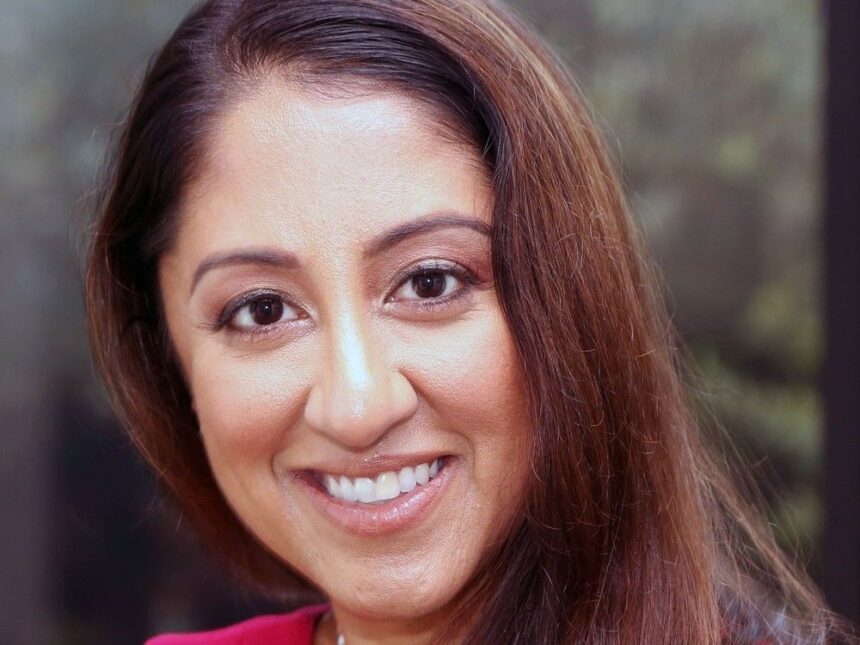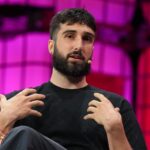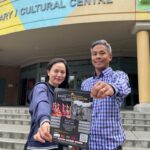The University of British Columbia has appointed renowned American physician Dr. Deborah Navarro-McCoy as the new dean of its Faculty of Medicine, marking a significant leadership transition for one of Canada’s premier medical institutions.
Dr. Navarro-McCoy, currently serving as associate dean at Johns Hopkins School of Medicine in Baltimore, will assume her new role on September 1, according to a statement released by UBC President Santa Ono yesterday. The appointment concludes an international search that began last fall when current dean Dr. Roger Wong announced his intention to return to clinical practice after serving since 2019.
“We’re incredibly fortunate to have attracted someone of Dr. Navarro-McCoy’s caliber to lead our medical school into its next chapter,” said Ono during the virtual press conference. “Her exceptional track record in medical education reform and health equity initiatives perfectly aligns with UBC’s vision for the future of healthcare training in British Columbia.”
The 52-year-old Navarro-McCoy brings an impressive resume spanning three decades in academic medicine. After earning her MD from Stanford and completing residency at Massachusetts General Hospital, she built a reputation for pioneering community-based medical education programs that bridge urban-rural healthcare divides. Her research on integrating Indigenous health knowledge into medical curricula has been published in leading journals including The Lancet and Academic Medicine.
Speaking from her Baltimore office via video link, Navarro-McCoy expressed enthusiasm about joining UBC’s medical community. “British Columbia faces unique healthcare challenges with its geographic diversity and multicultural population,” she noted. “I’m particularly drawn to UBC’s commitment to training physicians who serve both urban centers and remote communities across the province.”
The appointment comes as UBC’s medical school navigates post-pandemic challenges, including addressing physician burnout and adapting to new technologies in medical education. According to recent statistics from the B.C. Ministry of Health, approximately 900,000 British Columbians lack a family doctor, creating urgency around physician training priorities.
Dr. Wong, the outgoing dean, highlighted Navarro-McCoy’s experience in expanding medical school enrollment as particularly valuable. “Under her leadership at Johns Hopkins, they increased their class size by 15% while maintaining educational quality,” Wong said. “That expertise will be crucial as we work to address British Columbia’s doctor shortage.”
During a question period following the announcement, Navarro-McCoy addressed concerns about an American physician taking the helm of a Canadian institution. “While healthcare systems differ, the fundamental challenges in medical education transcend borders,” she explained. “I’ve spent significant time studying the Canadian healthcare model and see tremendous opportunity to strengthen UBC’s already excellent programs.”
BC Minister of Health Adrian Dix welcomed the appointment, calling it “a significant win for healthcare education in our province” in a statement. “Dr. Navarro-McCoy’s experience developing distributed medical education models will strengthen our efforts to improve healthcare access in all communities, particularly in rural and underserved regions.”
The Faculty of Medicine at UBC, established in 1950, trains approximately 1,350 medical students across four distributed campuses in Vancouver, Victoria, Kelowna, and Prince George. The distributed training model, designed to encourage graduates to practice in communities throughout BC, aligns with Navarro-McCoy’s previous work on regional medical education.
“I’m particularly impressed by the innovative Island Medical Program and Northern Medical Program,” Navarro-McCoy said. “These initiatives represent exactly the kind of creative thinking needed to address physician distribution challenges.”
Dr. Alison Campbell, president of the BC Medical Association, expressed cautious optimism about the appointment. “While Dr. Navarro-McCoy’s credentials are impressive, the real test will be how quickly she can understand the unique challenges facing British Columbia’s healthcare system,” Campbell told me during a phone interview. “We look forward to working closely with her to ensure medical education reflects the realities of practice in our province.”
The appointment has generated significant discussion among UBC medical students. Sarah Dhaliwal, president of the UBC Medical Undergraduate Society, attended yesterday’s announcement and noted student enthusiasm about Navarro-McCoy’s background in medical education innovation. “Her work on curriculum reform at Johns Hopkins is something many of us have studied,” Dhaliwal said. “There’s real excitement about the fresh perspectives she’ll bring.”
As part of her new role, Navarro-McCoy will oversee not only the MD undergraduate program but also UBC’s extensive health professional education portfolio, including physical therapy, occupational therapy, midwifery, and genetic counseling programs. The faculty currently supports over 11,000 faculty appointments across BC.
When asked about immediate priorities, Navarro-McCoy identified three areas of focus: expanding clinical training opportunities in underserved communities, integrating virtual care competencies into the curriculum, and strengthening support systems for student and faculty wellbeing.
“The pandemic revealed both strengths and vulnerabilities in our healthcare education systems,” she observed. “We have an opportunity to build greater resilience while preparing the next generation of healthcare providers for an increasingly complex landscape.”
UBC officials indicated that Navarro-McCoy will make several visits to British Columbia in the coming months to meet with stakeholders before officially beginning her five-year term in September. Her appointment includes a faculty position in UBC’s Department of Family Practice, where she intends to maintain limited clinical hours alongside her administrative duties.
“I believe deans should stay connected to the clinical realities their graduates will face,” she explained. “My effectiveness as an academic leader depends on understanding the evolving healthcare environment firsthand.”






